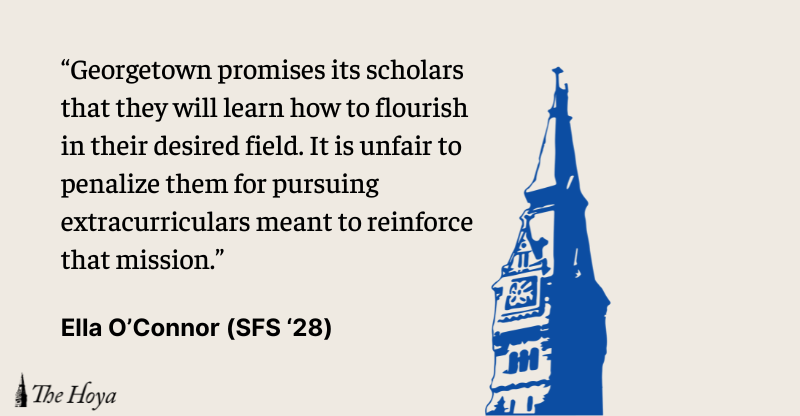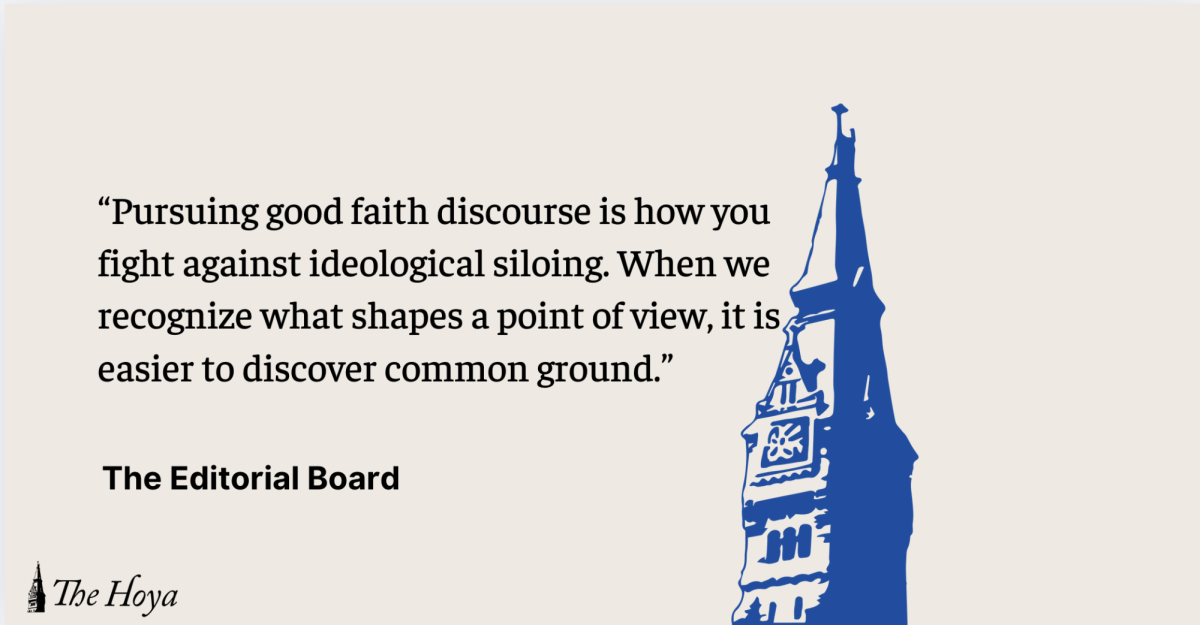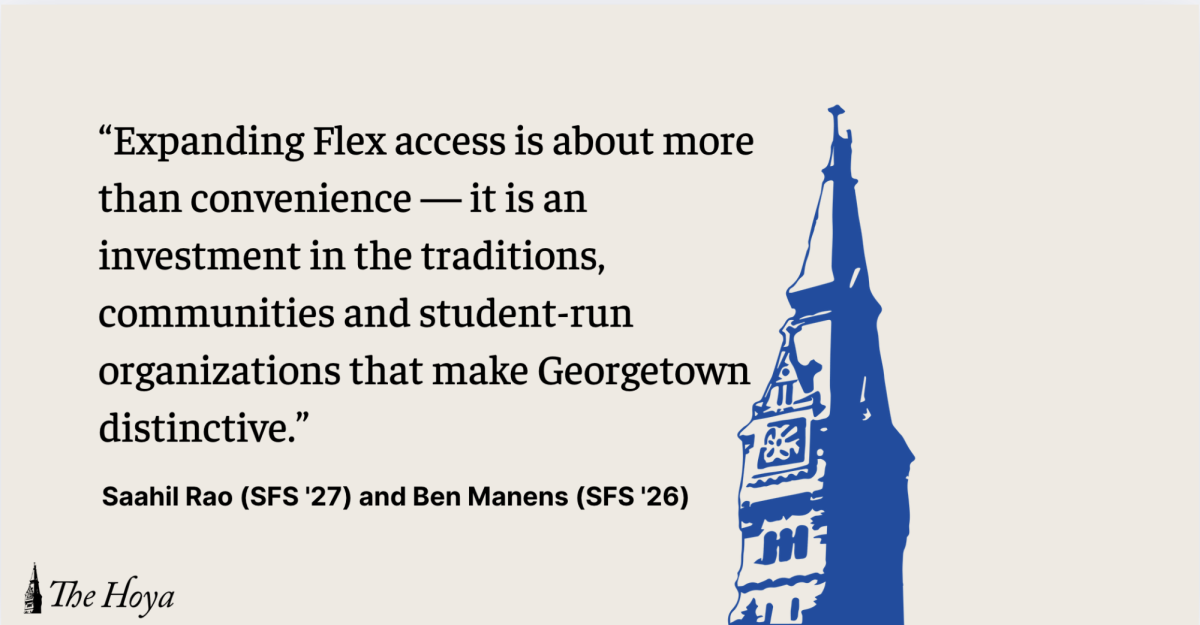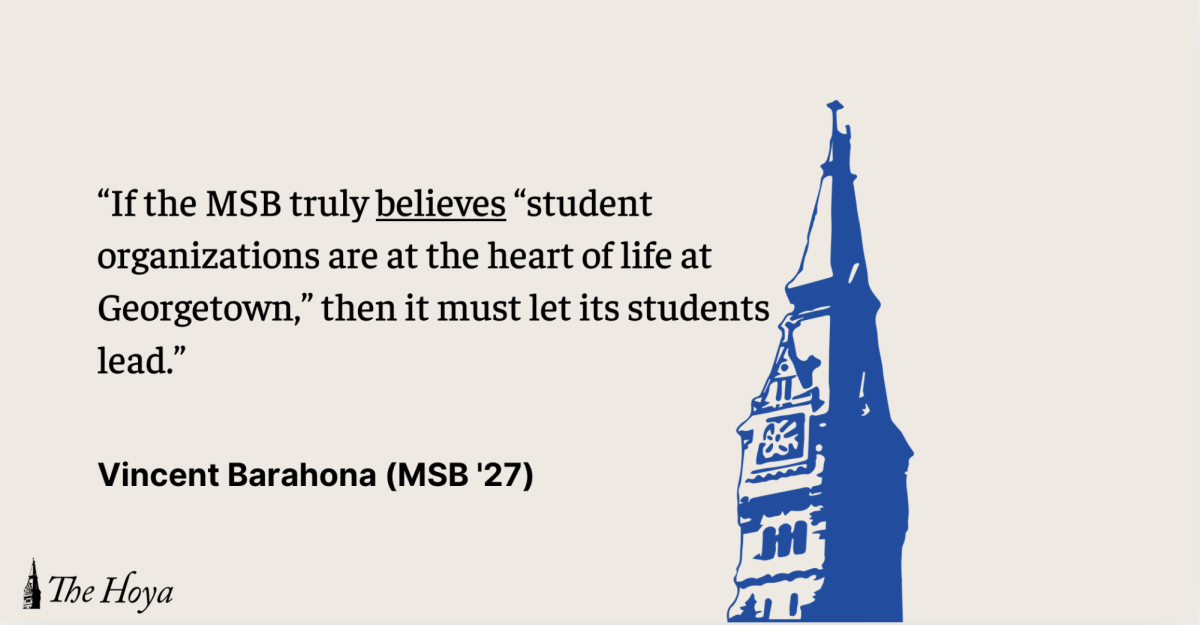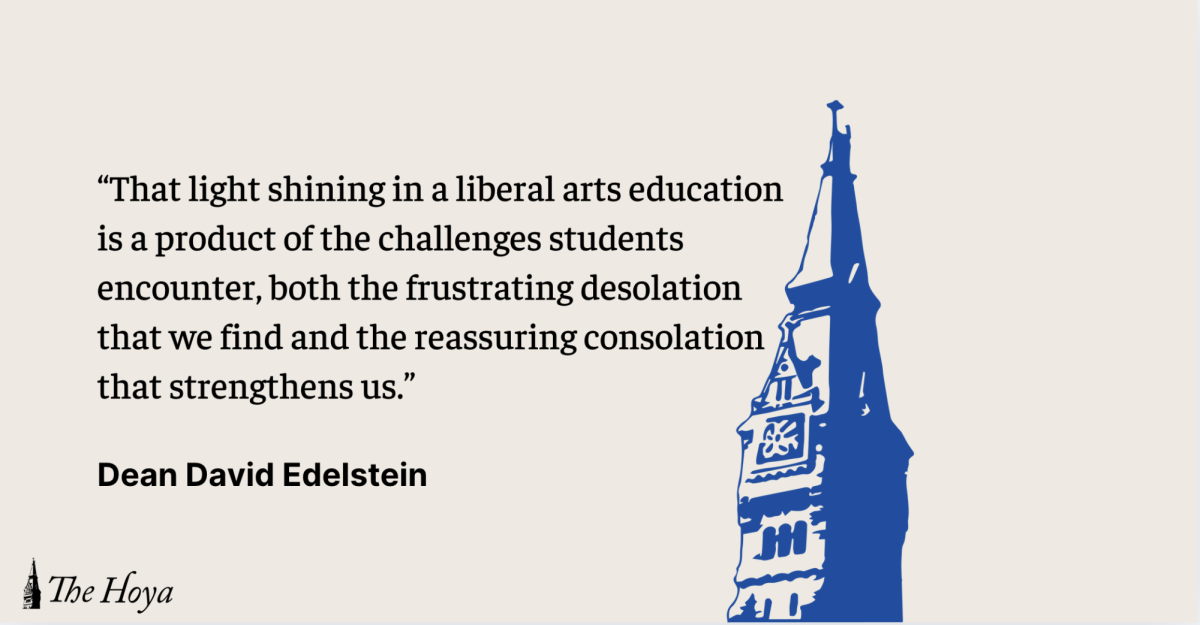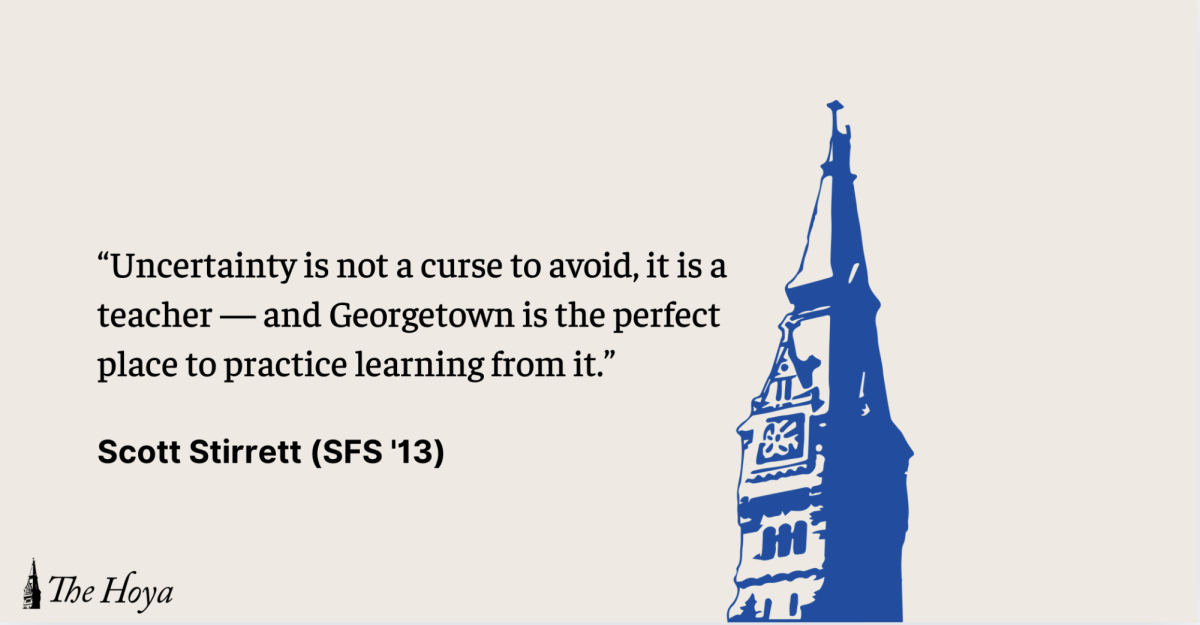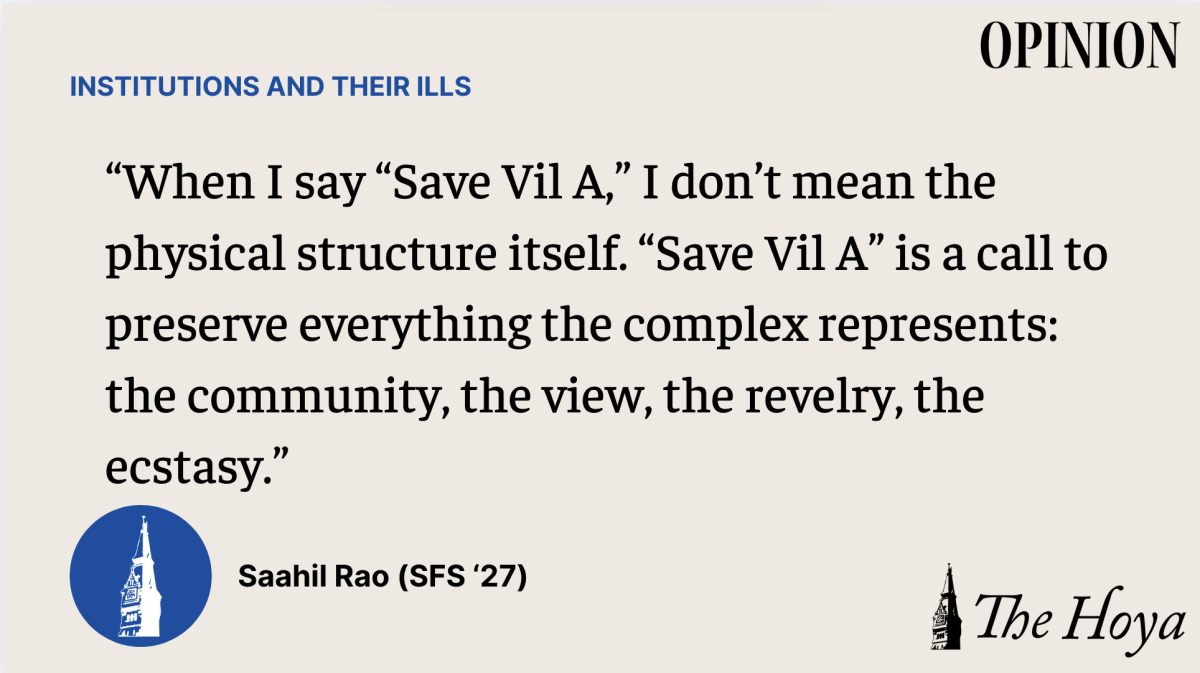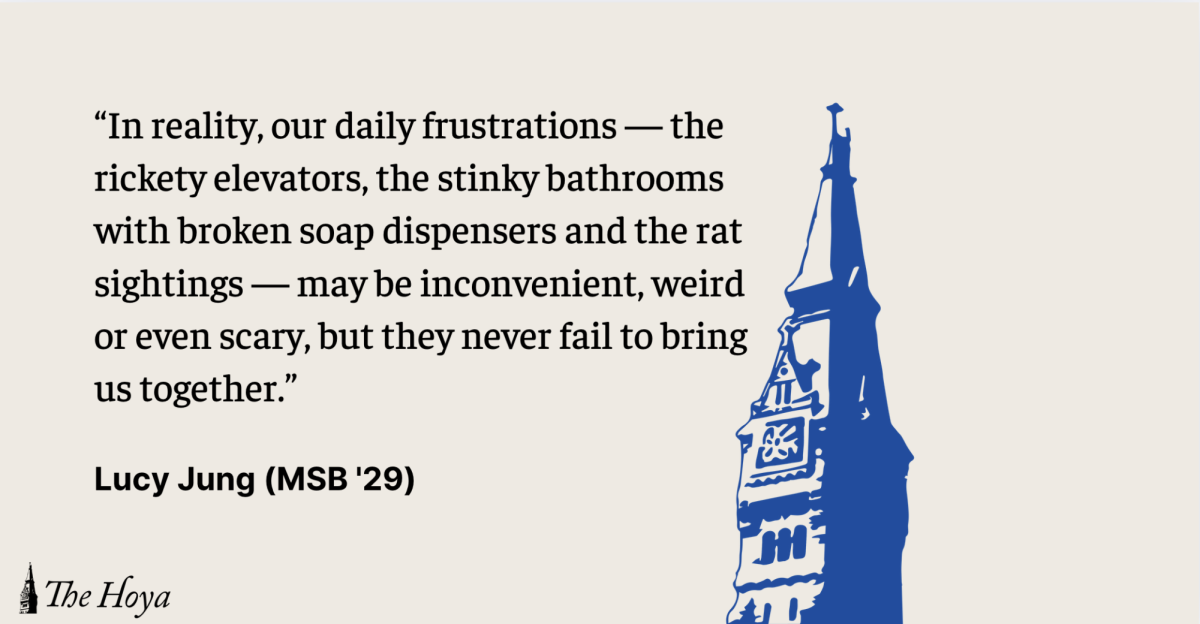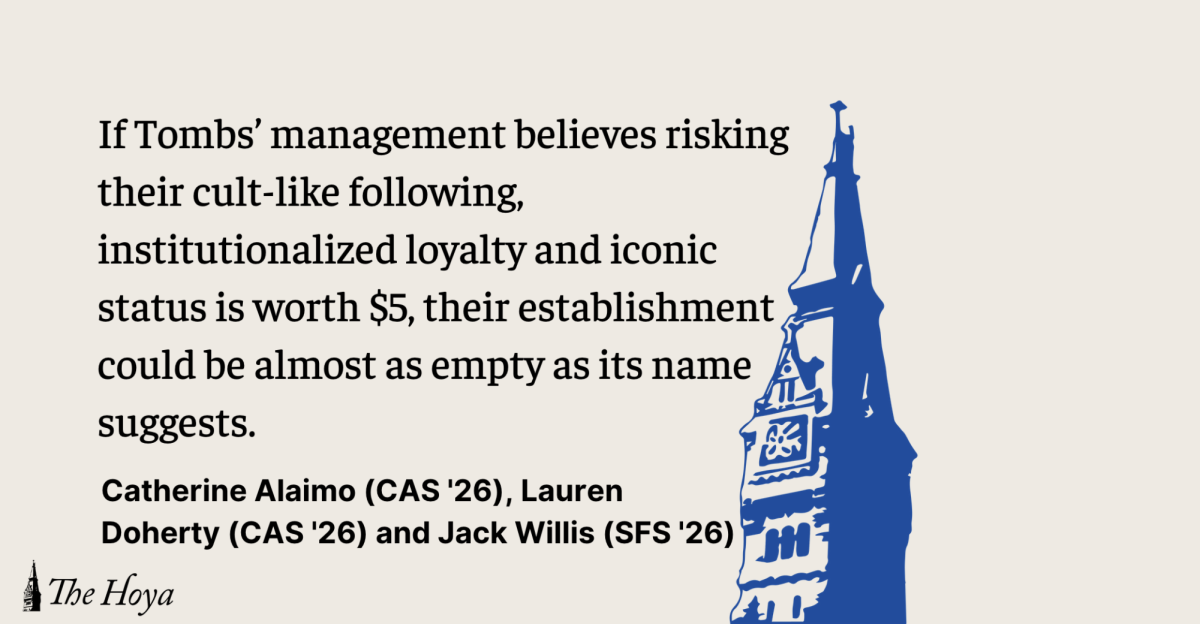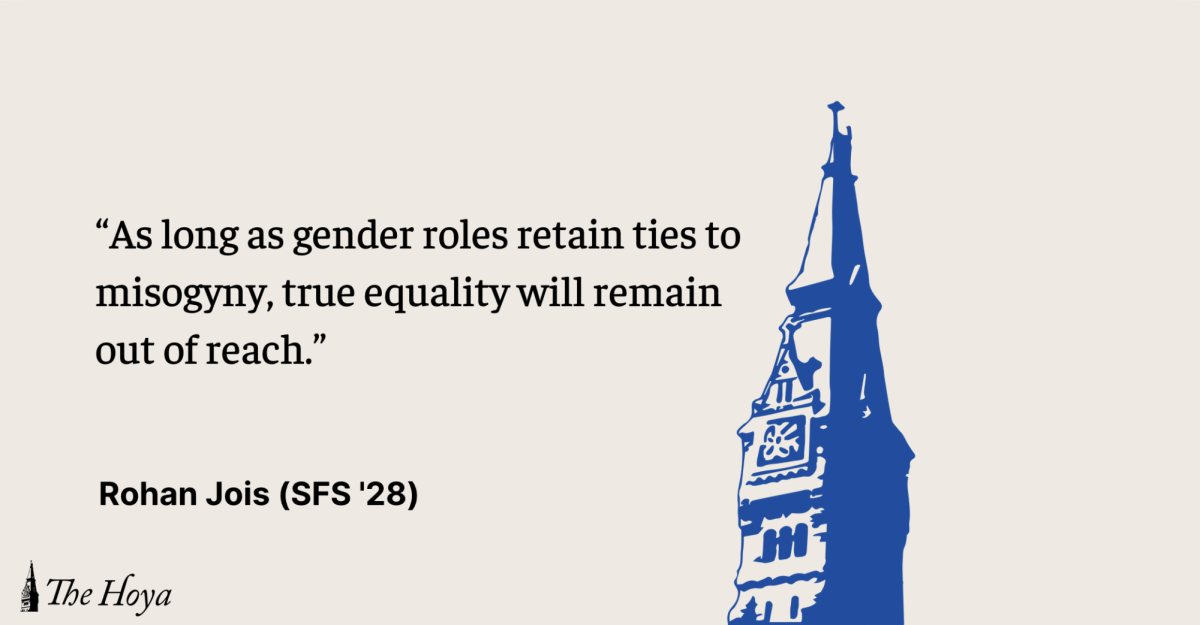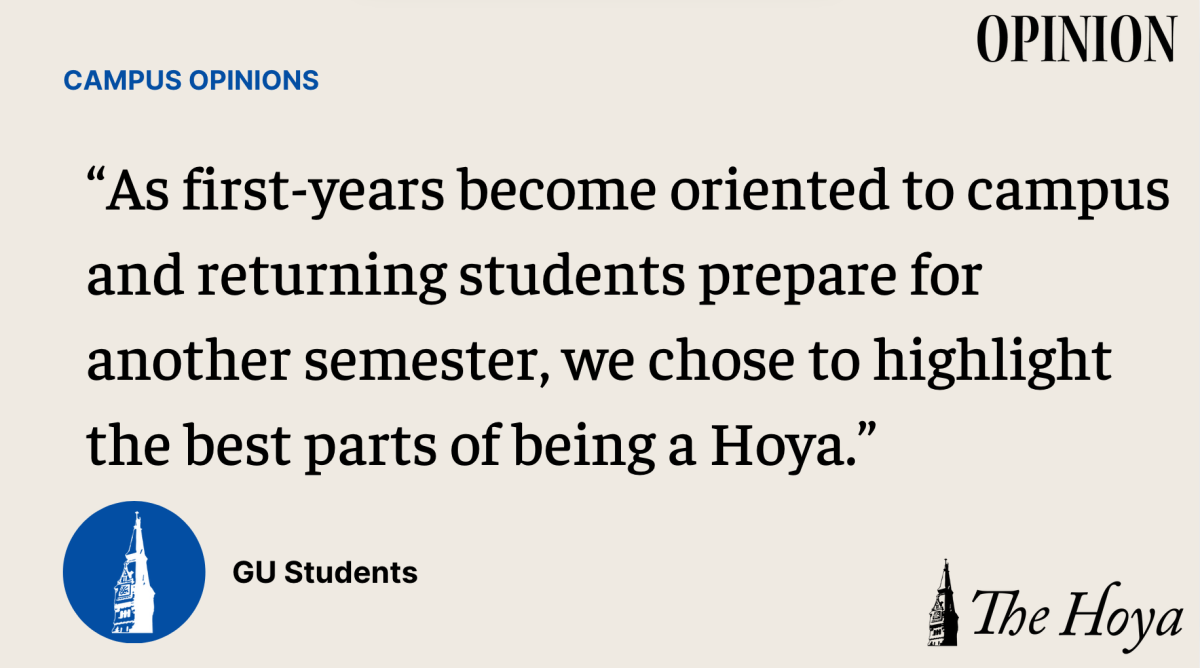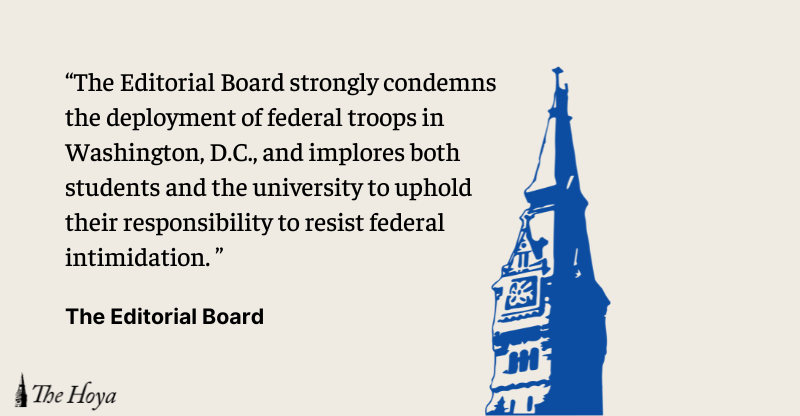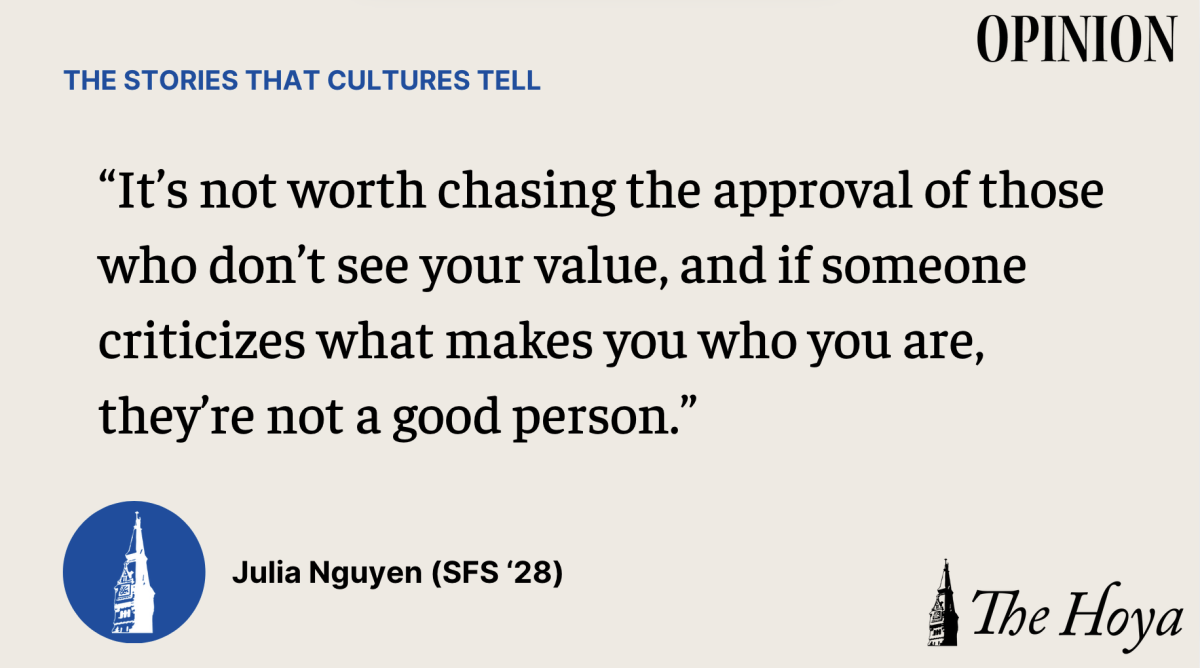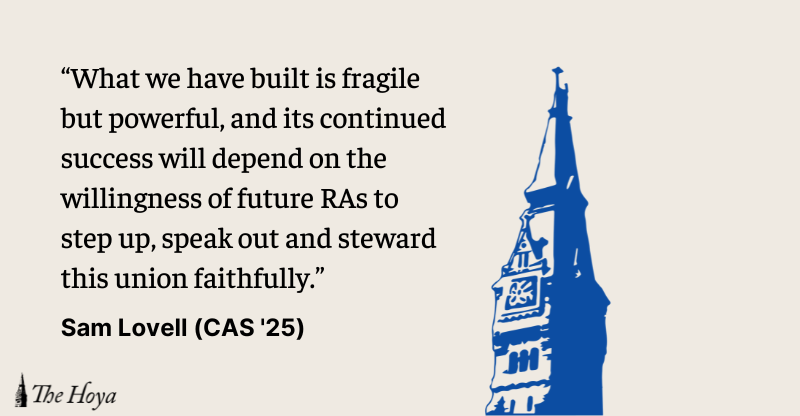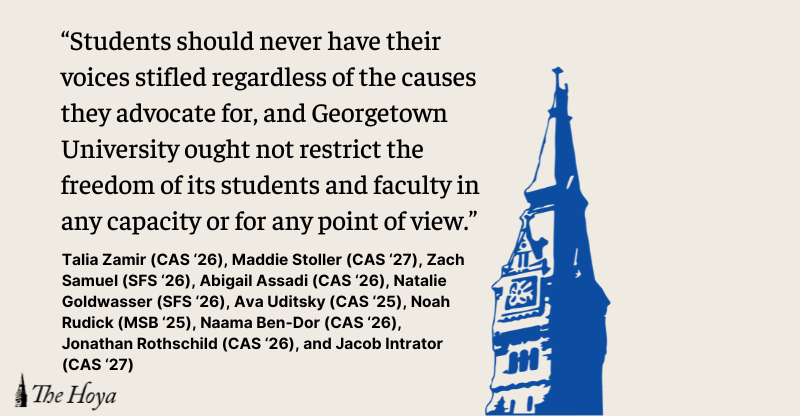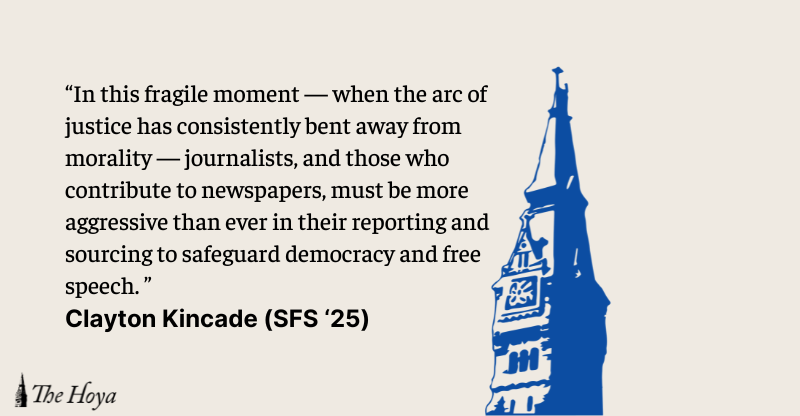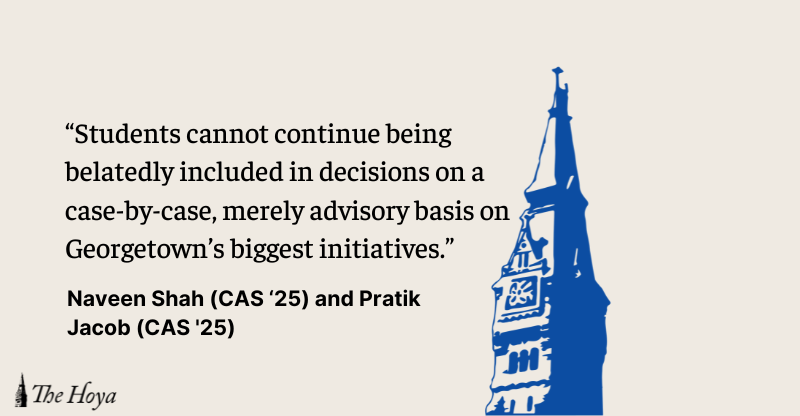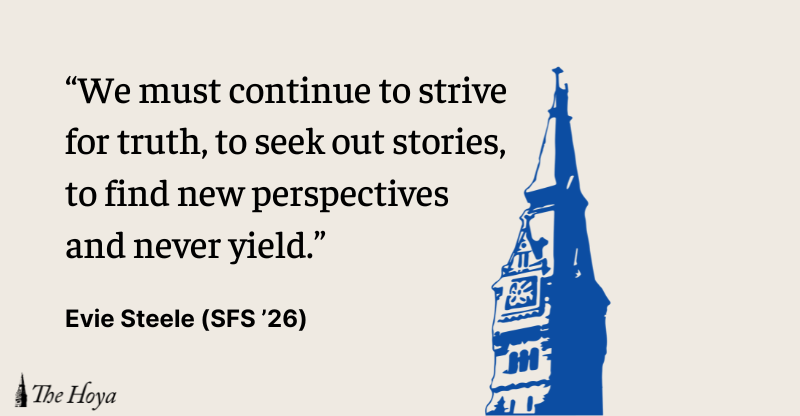As a first-year, I was initially stunned by the selectivity of the club application process, but soon became thrilled by the challenge. Coming from a hometown where sports were championed over academic achievements, I found it invigorating to be in an environment where both types of activities were held in equally high regard. The energy and passion that Georgetown University students put towards their chosen clubs is nothing short of contagious, and rightfully so — after sweating through rounds of interviews or tryouts, it feels like an honor to be selected as a member of your favorite organization.
Yet when it comes to off-campus events and trips, students in academic competition clubs face a dilemma: receive an unexcused absence or sacrifice an opportunity for personal advancement. Georgetown University Model United Nations (GUMUN) is currently ranked second in North America, and Georgetown Debate has won the Top Speaker award at the National Debate Tournament six times. It’s time for Georgetown to start supporting students in pursuing their interests without penalty.
While Georgetown helps student-athletes obtain excused absences for games, its policies fail to recognize students’ dedication to academic clubs. The attendance policies should be updated to excuse absences for legitimate extracurricular commitments that conflict with class times.
This semester, four out of my six classes have strict attendance policies: If I miss more than the permissible number of classes outlined in the syllabus, points begin to come off of my average. Most of my peers face the same rules. If they want to compete, they have to hope they won’t fall ill later in the semester and violate their professor’s maximum number of absences.
If a varsity-level student-athlete has to miss class to participate in a sports competition, they must notify their professors in writing at the beginning of the semester of all unavoidable conflicts. This must be done prior to the end of the add/drop period, to discuss whether the absence can be reasonably accommodated.
Club participants are not afforded that luxury and face a different reality. New members learn of their acceptance after the add/drop period ends, and returning members learn their travel schedules too late to notify professors properly and arrange accommodations. Moot Court members are informed approximately a month in advance of their scheduled tournament dates. Certain organizations such as GUMUN have debaters apply to attend individual conferences just weeks or days before they occur. The structure of their competition seasons leaves students unable to fully outline their absences to their professors before the add/drop period ends.
Additionally, varsity athletes are assigned an athletics academic advisor who advocates for them — someone who can liaise with professors to resolve attendance conflicts. While other students have advisors within their respective schools, these advisors cannot as easily work with professors to manage student absences.
Students do ultimately choose to become a member of on-campus activities, and some may argue that this means they choose to accept the consequences of missing classes for said activities. Yet it is unfair for students to have to choose between accepting an unexcused absence, risking their GPA, or depriving themselves of an experience often closely related to the field they wish to work in one day. Georgetown promises its scholars that they will learn how to flourish in their desired field. It is unfair to penalize them for pursuing extracurriculars meant to reinforce that mission.
Both clubs and administration need to play a role in revising the attendance policy. The administration should become more receptive to these types of conflicts, understanding their importance to the student body. University-wide policies should be revised to allow exemptions for club-related absences when documentation and dean-approval are provided (preventing the abuse of the policy). To support this change, clubs should publicize all known travel dates, so that members can notify their professors of possible conflicts far in advance. If applications are on a conference-by-conference basis, students can then negotiate with their professors to determine a fair number of events to attend.
Georgetown’s core values include not only academic excellence but also educating the whole person. Its mission includes integrating the virtuous life into academic experiences, co-curricular life on campus and beyond. To live up to these values, the administration must change the attendance policy to support those genuinely excited to take their learning beyond just sitting in a classroom.
Ella O’Connor is a first-year student in the School of Foreign Service.


